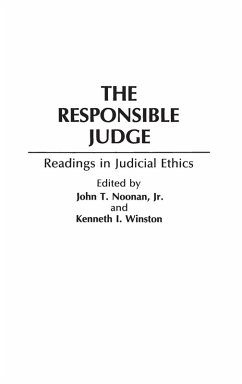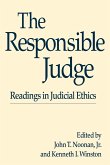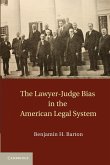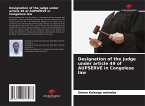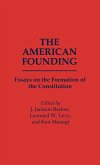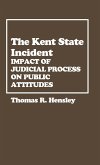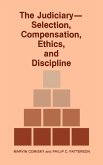This highly informed selection of readings on judicial ethics is singular in the authoritative commentary and experience offered by the editors. The work considers the various ways in which moral problems arise for judges. The three sections examine: the ideal, corrupt, and over-zealous judge; the "judging" role as it is affected by tensions rising from not only the facts of a case and legal precedents but also from personal beliefs and social expectations; and, in the final section, the judge's need for independence and its relationship to accountability and the avoidance of abuse. This work is a balanced, comprehensive, and constructive volume reflecting on the moral issues involved in sitting in judgment.
Society and individual members thereof who approach the court in conscience desire justice. They place their hope not only in the knowledge but also in the morality of the judges. At a time when the values of the judiciary are under intense scrutiny, Noonan and Winston present an extensive, highly informed collection of readings with commentary and explication. They address the concept and role of judge, the act of judging, and the requirements and potential abuses inherent in the system and process of sitting in judgment. This is a reflective, yet eminently realistic consideration of the fundamental issues and questions involved in establishing a reasonable framework for assessing judicial morality. The work first examines qualities of the ideal, corrupt, and over-zealous or political judge. The editors next address the judge's role and response in view of the tensions rising not only from the facts of the case and legal precedents but also from such human qualities as compassion. They also look at the power of social expectations and personal beliefs as possible influences on judicial decisions. Finally, the editors consider the need judges have for independence and study that necessary factor in relationships to accountability and also potential for abuse. This is a learned, inclusive, yet accessible and captivating, work. It will clarify and reinvigorate discussion of critically important issues fundamental to an ethical judiciary.
Hinweis: Dieser Artikel kann nur an eine deutsche Lieferadresse ausgeliefert werden.
Society and individual members thereof who approach the court in conscience desire justice. They place their hope not only in the knowledge but also in the morality of the judges. At a time when the values of the judiciary are under intense scrutiny, Noonan and Winston present an extensive, highly informed collection of readings with commentary and explication. They address the concept and role of judge, the act of judging, and the requirements and potential abuses inherent in the system and process of sitting in judgment. This is a reflective, yet eminently realistic consideration of the fundamental issues and questions involved in establishing a reasonable framework for assessing judicial morality. The work first examines qualities of the ideal, corrupt, and over-zealous or political judge. The editors next address the judge's role and response in view of the tensions rising not only from the facts of the case and legal precedents but also from such human qualities as compassion. They also look at the power of social expectations and personal beliefs as possible influences on judicial decisions. Finally, the editors consider the need judges have for independence and study that necessary factor in relationships to accountability and also potential for abuse. This is a learned, inclusive, yet accessible and captivating, work. It will clarify and reinvigorate discussion of critically important issues fundamental to an ethical judiciary.
Hinweis: Dieser Artikel kann nur an eine deutsche Lieferadresse ausgeliefert werden.

